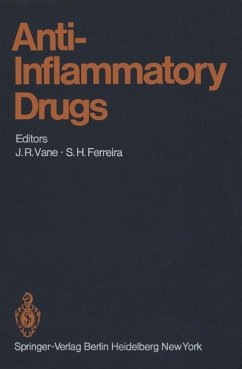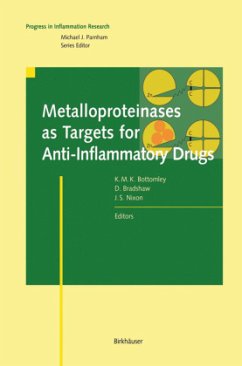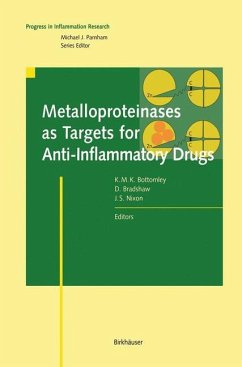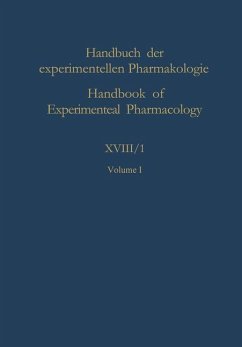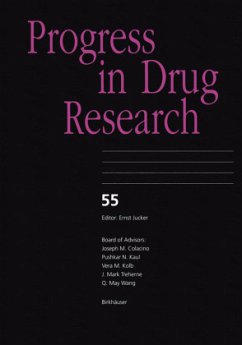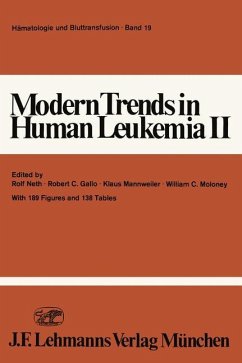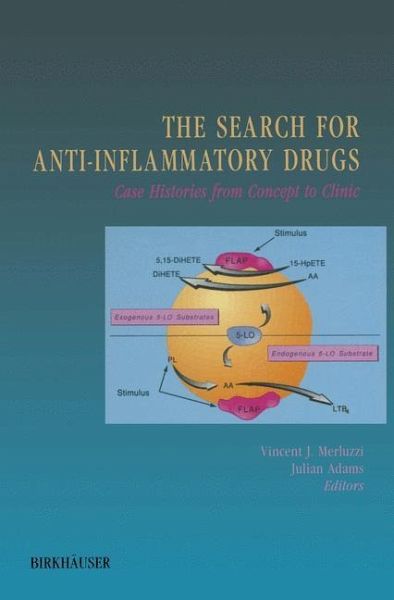
The Search for Anti-Inflammatory Drugs
Case Histories from Concept to Clinic
Herausgegeben von Merluzzi, Vincent J.; Adams, Julian
Versandkostenfrei!
Versandfertig in 6-10 Tagen
38,99 €
inkl. MwSt.

PAYBACK Punkte
19 °P sammeln!
Perspectives on Anti-Inflammatory Drugs Inflammation is a very complicated process of interrelated events and cas cades that does not allow for an easily defined, focused attack for drug discovery. It is evident from years of research and development that certain classes of compounds (e.g., NSAIDs, steroids, and so on) have had a meas ure of success in alleviating pain and even dampening cellularlhormonal mechanisms involved in the process. Clear, mechanism-related therapies (e.g., for arthritis) and targeted drugs (e.g., for transplantation) have not been available in the past and, in reality...
Perspectives on Anti-Inflammatory Drugs Inflammation is a very complicated process of interrelated events and cas cades that does not allow for an easily defined, focused attack for drug discovery. It is evident from years of research and development that certain classes of compounds (e.g., NSAIDs, steroids, and so on) have had a meas ure of success in alleviating pain and even dampening cellularlhormonal mechanisms involved in the process. Clear, mechanism-related therapies (e.g., for arthritis) and targeted drugs (e.g., for transplantation) have not been available in the past and, in reality, research in inflammation has re lied on more phenomenological approaches for resolving symptoms or on blatant cytoreductive approaches in cases like organ transplantation. In the last decade, approaches that have revealed novel cellular pathways in which intervention is possible for lymphocyte regulation (for example, cyclosporine and FK506) and small molecular weight mediators (e.g., leu kotriene inhibitors) are now either standard therapy or will be in a short time. These latter approaches have been the result of research from the 1970s up to the present.







